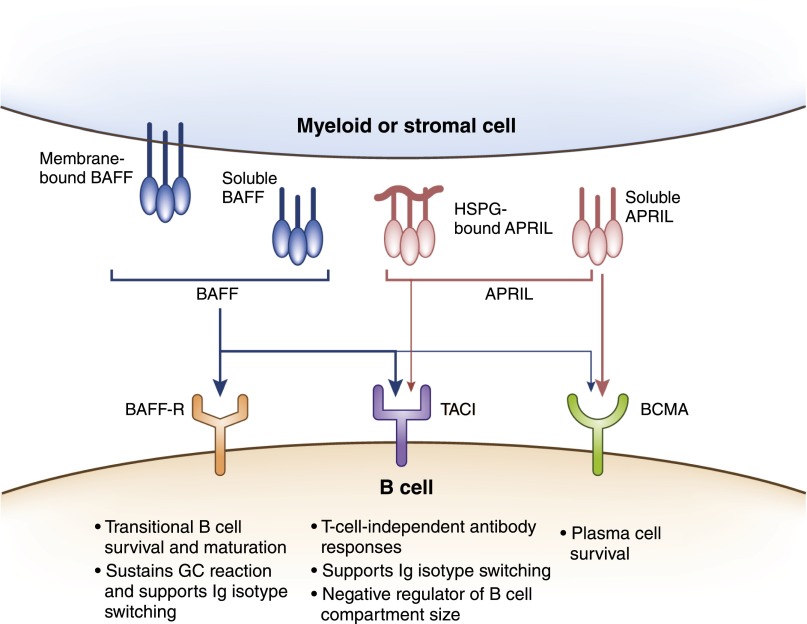Figure 5.
B cell–activating factor (BAFF), a proliferation-inducing ligand (APRIL), and their receptors. BAFF and APRIL are transmembrane proteins of the TNF family that can be proteolytically cleaved to produce soluble forms. They are produced by myeloid cells, such as dendritic cells (DCs), neutrophils, monocytes, macrophages, and stromal cells. BAFF binds strongly to receptors, B cell–activating factor-receptor (BAFF-R) and transmembrane activator and cyclophilin ligand interactor (TACI), and weakly to B-cell maturation antigen (BCMA), whereas APRIL binds strongly to BCMA and moderately to TACI. APRIL can also exist bound to heparin sulfate proteoglycan (HSPG) in extracellular matrix and interacts with TACI in this form. BAFF promotes survival and maturation of transitional B cells into mature B cells, supports B cell proliferation, class-switch recombination (CSR), and plasma cell survival. APRIL is critical for T-independent responses and supports CSR and survival of plasma cells.

